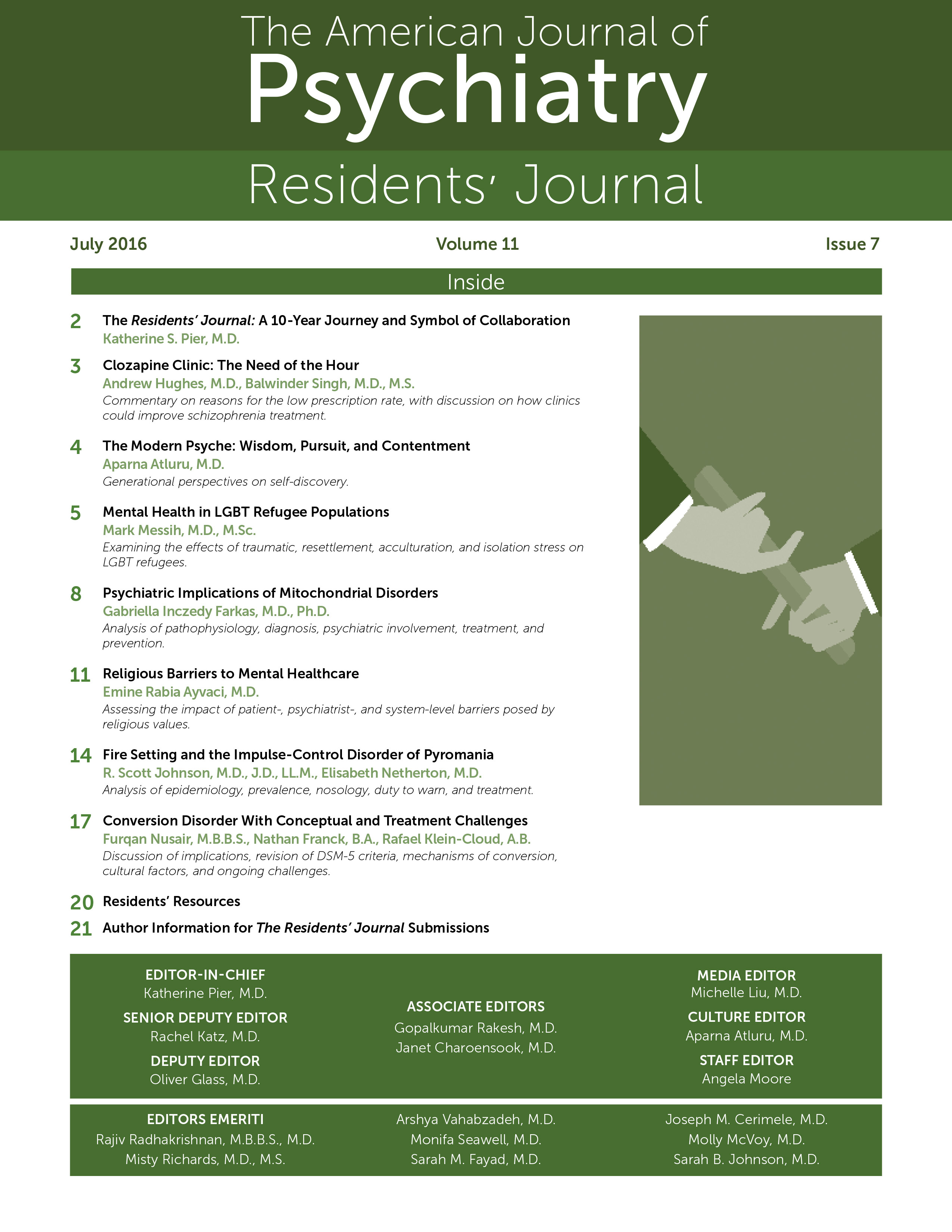Despite advances, psychiatrists continue to struggle with the safe and effective treatment of schizophrenia. Clozapine is a second-generation antipsychotic with a unique D
2 dissociation constant, high affinity for D
1- and D
4-dopaminergic receptors, and potent antagonism of serotonergic and alpha-adrenergic receptors. Unfortunately, many physicians are reluctant to prescribe clozapine due to potentially fatal side effects such as agranulocytosis, myocarditis, cardiomyopathy, paralytic ileus, and aspiration pneumonia (
1). We would like to call for an increase in clozapine clinics as a possible solution to this problem.
While various guidelines suggest second-generation antipsychotics as the initial pharmaceutical treatment for a first psychotic break, there is no consensus on which antipsychotic is best. Despite consistent evidence of superior efficacy, improved outcomes, and improved morbidity, clozapine is “strikingly underutilized” (
2). Studies of physicians’ prescribing practices reveal that only small portions of patients with treatment-resistant schizophrenia are treated with clozapine (
3). Since the introduction of newer second-generation antipsychotics, clozapine use has decreased in the United States, from 11% of the total second-generation antipsychotics prescribed in 1999 to less than 5% in 2002 (
3).
Clozapine’s low prescription rate is likely related to its side-effect profile, as previous investigations have reported prescriber fear as a major factor for noninitiation (
4). As a result, many clinicians decide to avoid clozapine altogether. Those who prescribe it may be unacquainted with its usage, resulting in treatment errors such as underdosing, unneeded discontinuation, and poor or inadequate side-effect intervention (
1).
To further complicate the prescription of clozapine, patients with schizophrenia often have an inherent tendency toward poor adherence. Interestingly, a randomized controlled trial (RCT) conducted in first-episode treatment-naive patients with schizophrenia have suggested that clozapine may have superior efficacy in the initial year of treatment, mostly due to greater adherence (
5). In another RCT, patients receiving clozapine were also found to remit significantly faster and remain in remission longer than those taking a first-generation antipsychotic (chlorpromazine) (
6).
We believe the above barriers to prescription and adherence could be addressed with clozapine clinics. In such clinics, trained staff members have the resources, knowledge, and experience required to provide safer, more closely monitored treatment. Furthermore, clozapine clinics allow for time specifically dedicated to contacting patients and encouraging consistent follow-up. Finally, clozapine clinics can deliver focused supplementary training for psychiatric residents and other medical professionals. These professionals can gain confidence and experience with clozapine prescription in a controlled environment before continuing on to individual practices. Massachusetts General Hospital recently tested this idea and found that a 6-week direct patient contact clinic (along with accompanying curriculum-based instruction) effectively increased knowledge in participating residents (
7).
Clozapine clinics can improve multiple facets of schizophrenia treatment. They can expand clozapine’s accessibility, enhance clinician familiarity and competency, and provide better residency training for more effective use among desired communities. These benefits can be used to improve individual patient’s quality of life while playing an important role in the successful treatment of schizophrenia.
